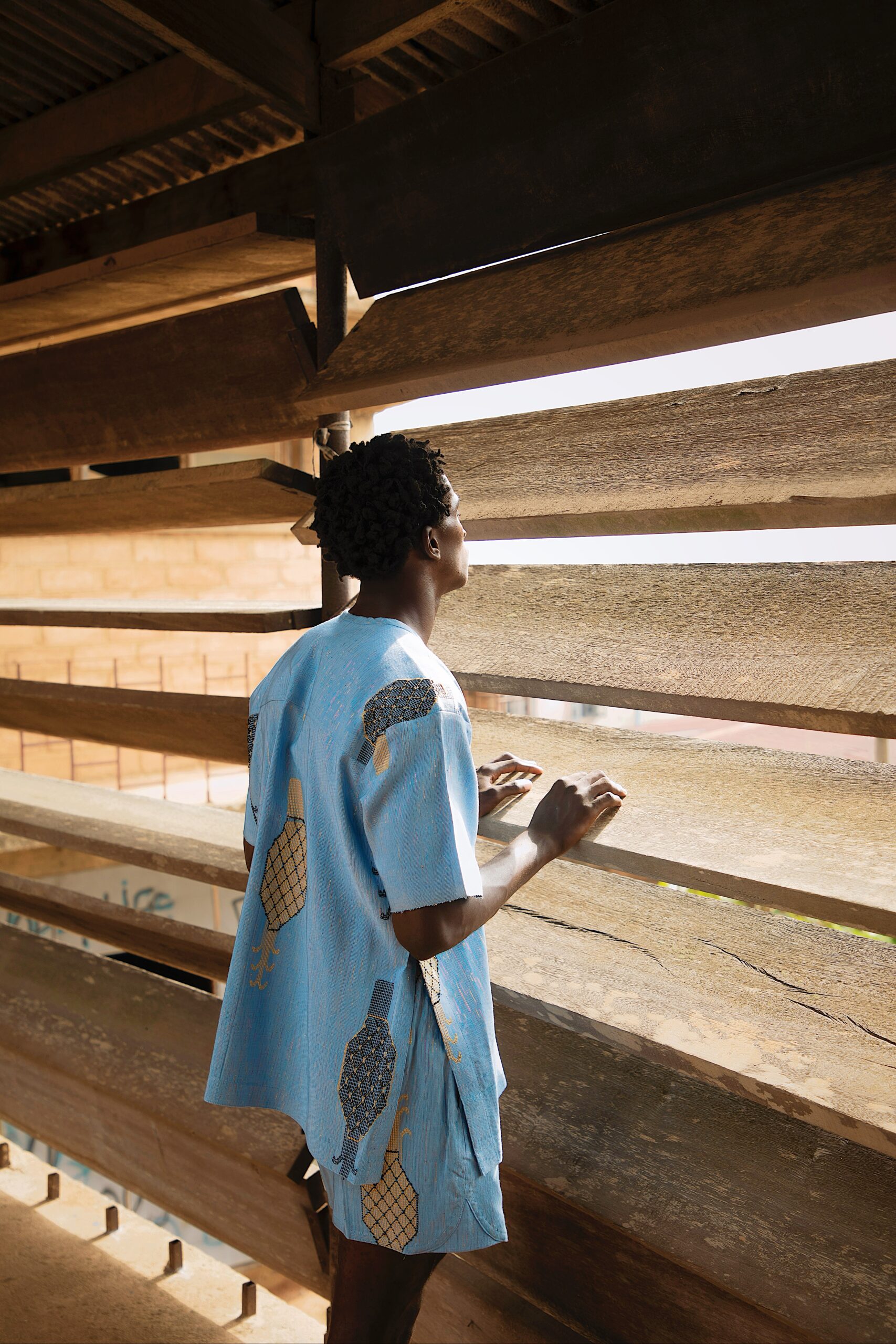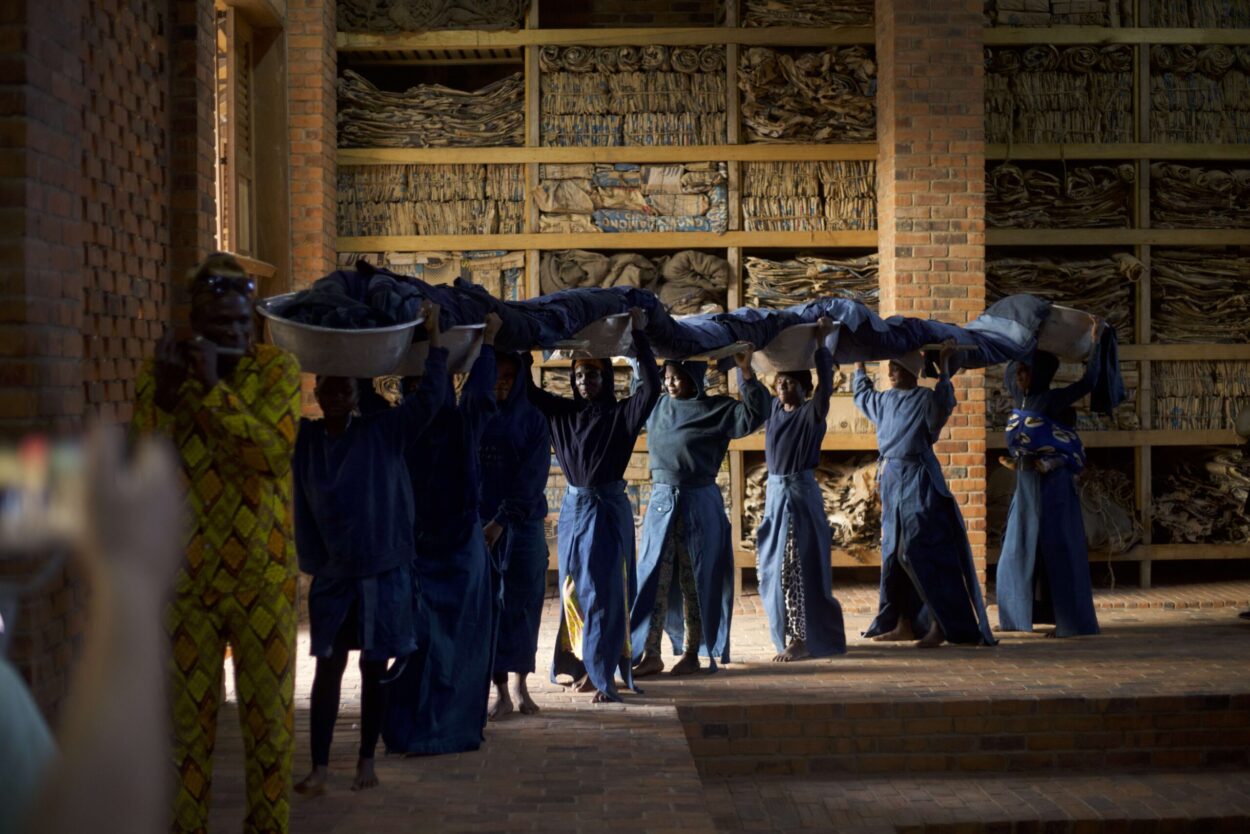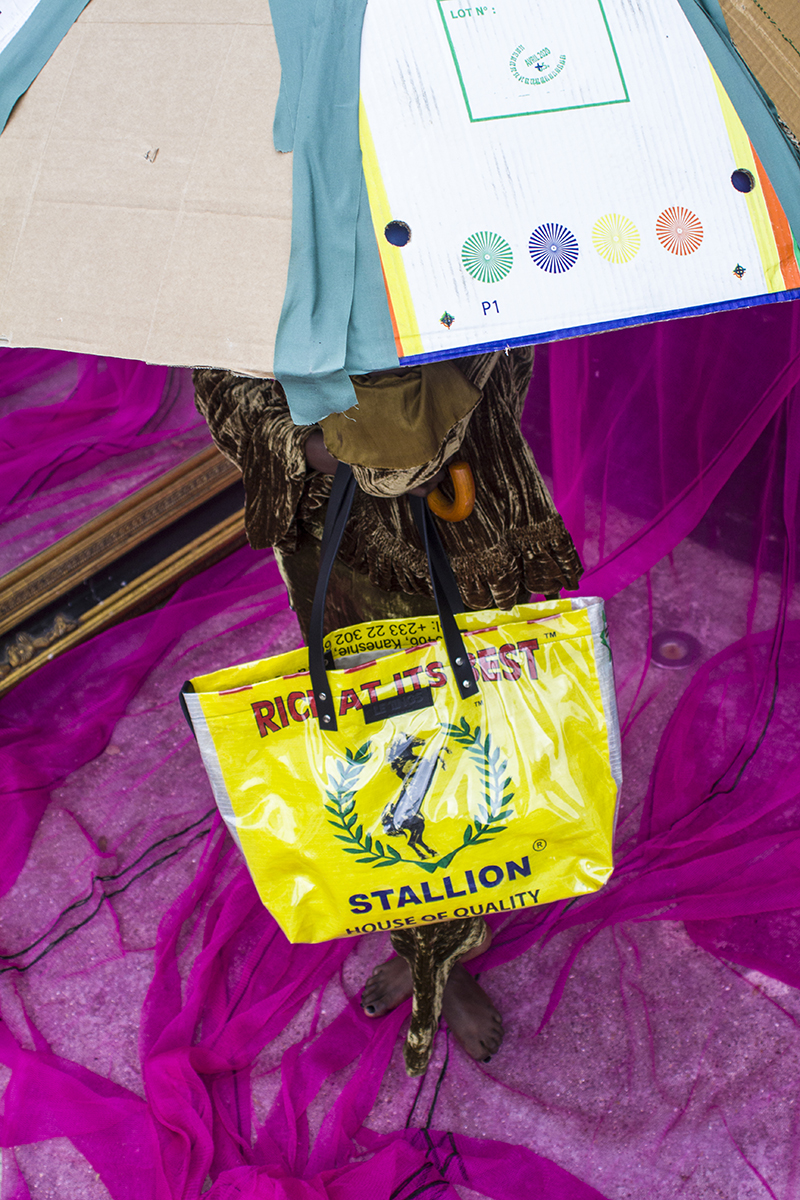The Burkinabé social enterprise draping the world in its elegant textiles
The eagle-eyed would have spied Burkina Faso’s beautiful faso danfani fabric becoming increasingly fashionable in recent years, as seen in collections by designers including Laurenceairline, Studio 189, Rafael Kuoto, Asantii and Lukhanyo Mdingi. For that we have Cabes (Commerce, Artisanat pour le Bien Être Social) to thank. The social enterprise was established in Ouagadougou in 2014 in partnership with the Ethical Fashion Initiative (EFI), a programme of the International Trade Centre dedicated to building sustainable fashion practices in emerging economies. Cabes has since brought together over 90 women-led associations and 2,400 artisans across Burkina Faso and benefits its members by providing equipment, facilities and training as well as supporting sales, exports and logistics.

Burkina Faso is one of Africa’s biggest cotton producers and renowned for faso danfani, which means ‘the fabric woven at home’ in the Dioula language. “What I find powerful about faso danfani is that it is not a dead heritage or something reserved to the upper class or foreign customers. It is the pride of a nation and people wear it for special occasion as well as for everyday life,” says Oceane Joncoux, project manager at Cabes/EFI. “Weaving used to be a man’s job in the region but after Burkina Faso achieved independence in 1984, its first president, Thomas Sankara, put women to work and every home had a small loom.” Pascaline Ouedraogo, a Cabes weaver in Ouagadougou, agrees: “Fasi danfani is part of our identity. You can spot a Burkinabé from a mile away just by the that clothes he wears.”

The making process begins with acquiring the raw organic cotton from local farmers, which is ginned and spun then dyed using natural dyes, before the spooled yarn pass to the weavers. It takes up to 10 days to prepare the loom by winding, wrapping and passing 3,000 threads onto it frame using a comb. Each artisan can then weave around two metres a day, which once complete, will go through rigorous quality control. The Cabes catalogue ranges from classic stripes through to checks, piqué, seersucker, ikat and houndstooth.

Alongside Faso danfani, Cabes’ produces other storied West African textiles including resist-dyed indigo, koto-dunda tie-dye, bogolan mud cloth and batik. And other innovations include introducing a wider loom to broaden the commercial appeal of its woven fabrics. Little wonder then that it can count global brands such as Loewe, Wales Bonner, Vivienne Westwood, United Arrows, The Corner and Camper as clients. The draw is not only the brilliance of its fabrics but also that Cabes is committed to using GOTS (Global Organic Textile Standard) certified dyes and cottons, and applies a code of conduct based on international labour conventions and the UN’s Sustainable Development Goals. “Thanks to these textiles, women can care for their families, improve their living conditions and make investments. Also, there’s the satisfaction of knowing that their work is being sold and appreciated around the world,” says Cabes manager Karfa Yacoro.

Beyond Burkina Faso, EFI continues to support initiatives across the Global South by managing an international supply chain, identifying talent for business acceleration (past alumni include Orange Culture, Katush and Margaux Wong) and tracking results with impact assessment reporting. They currently have active production hubs in Kenya (where EFI’s first venture took shape in 2009) and in Benin and have built a network across Mali, Nigeria, Uganda, Ghana, Burundi and beyond. Its most recent project is Studio 4, a patternmaking and cut and sew workshop in Abidjan, Côte d’Ivoire. Established in 2023, it offers a space where local artisans and designers can come to train and produce, creating up to 200 jobs. And coming soon is a project centred on wool and mohair production in Lesotho.
“Artisans are what gives something the human touch, and that touch has value. It is their work that enables consumers to see where a product is made, and by whom,” says EFI founder Simone Cipriani of what drives his organisation’s endeavours. “These individuals often live and work in informal circumstances but they have incredible skills – silk screening, sewing, dying, weaving. We give them access to finance and mentoring and offer them the possibility to set up their own co-ops, which then allows for product development and the formation of an ethical supply chain… But we have a long way to go and we are only at the very beginning.”
Visit the Ethical Fashion Initiative


